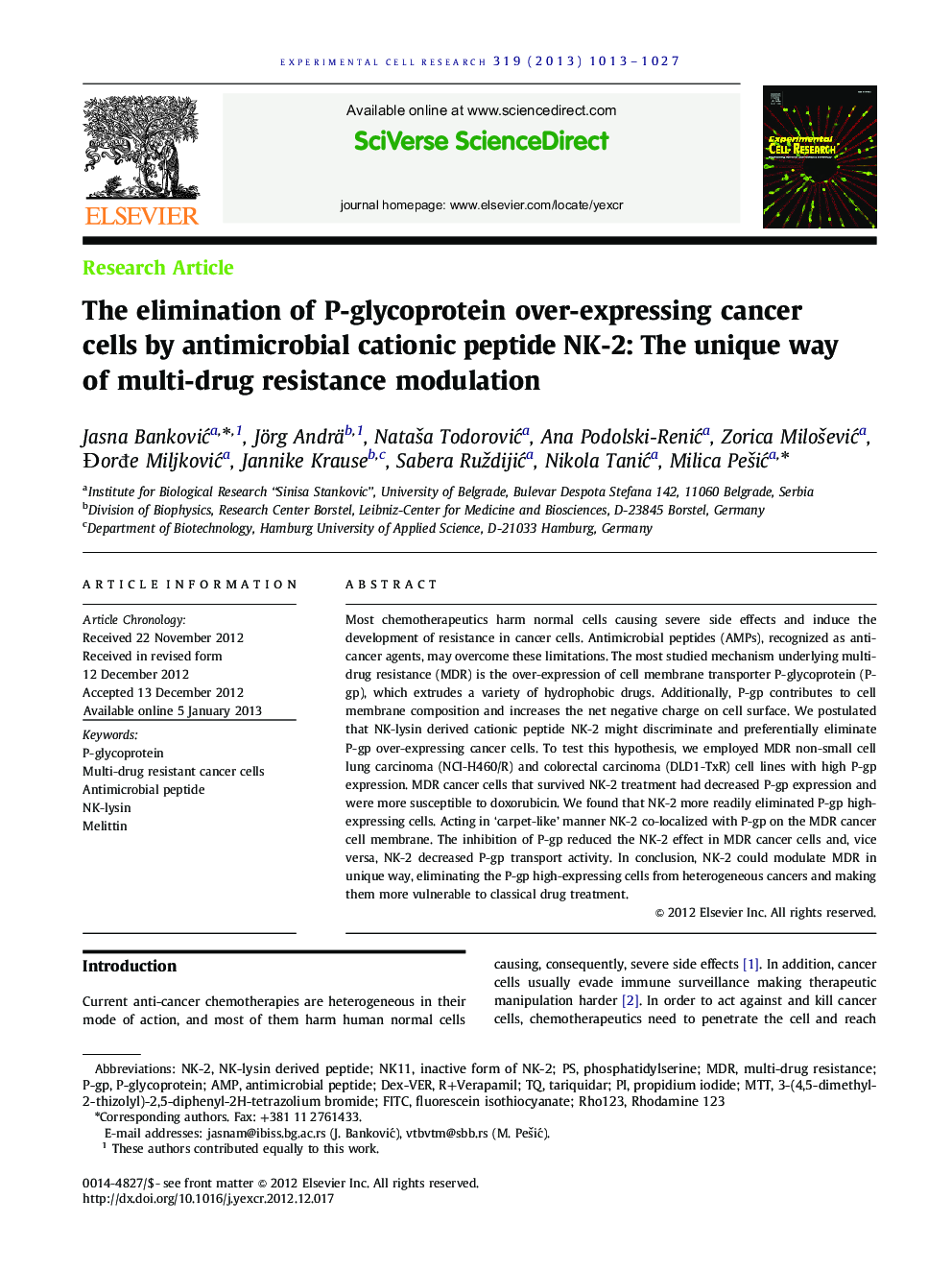| Article ID | Journal | Published Year | Pages | File Type |
|---|---|---|---|---|
| 2130500 | Experimental Cell Research | 2013 | 15 Pages |
Most chemotherapeutics harm normal cells causing severe side effects and induce the development of resistance in cancer cells. Antimicrobial peptides (AMPs), recognized as anti-cancer agents, may overcome these limitations. The most studied mechanism underlying multi-drug resistance (MDR) is the over-expression of cell membrane transporter P-glycoprotein (P-gp), which extrudes a variety of hydrophobic drugs. Additionally, P-gp contributes to cell membrane composition and increases the net negative charge on cell surface. We postulated that NK-lysin derived cationic peptide NK-2 might discriminate and preferentially eliminate P-gp over-expressing cancer cells. To test this hypothesis, we employed MDR non-small cell lung carcinoma (NCI-H460/R) and colorectal carcinoma (DLD1-TxR) cell lines with high P-gp expression. MDR cancer cells that survived NK-2 treatment had decreased P-gp expression and were more susceptible to doxorubicin. We found that NK-2 more readily eliminated P-gp high-expressing cells. Acting in ‘carpet-like’ manner NK-2 co-localized with P-gp on the MDR cancer cell membrane. The inhibition of P-gp reduced the NK-2 effect in MDR cancer cells and, vice versa, NK-2 decreased P-gp transport activity. In conclusion, NK-2 could modulate MDR in unique way, eliminating the P-gp high-expressing cells from heterogeneous cancers and making them more vulnerable to classical drug treatment.
Graphical abstractFigure optionsDownload full-size imageDownload high-quality image (242 K)Download as PowerPoint slideHighlights► P-glycoprotein over-expression is the major cause of multi-drug resistance. ► P-glycoprotein contributes to the negative charge of the outer membrane leaflet. ► Antimicrobial cationic peptide NK-2 discriminates cancer from normal cells. ► NK-2 more readily kills P-glycoprotein expressing negatively charged cancer cells. ► Modulation of multi-drug resistance could be achieved through NK-2 action.
